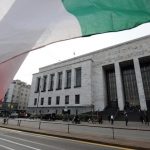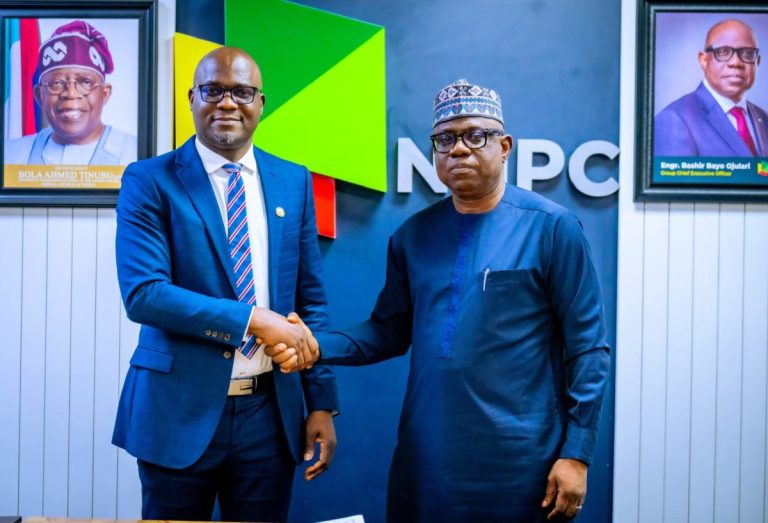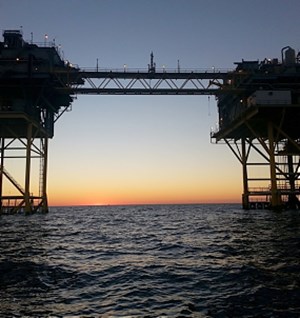In its latest legal moves, the Nigerian government has raised the stakes in the legal battles over the highly prospective OPL 245 oil block. The Africa Report delves into the background of what could be one of the most important corporate fraud cases in Africa’s history.
On a biting cold day in Milan in January, Ibrahim Ahmed, a Nigerian investigator, and Colonel Alessandro Ferri of Italy’s financial police, hustle into the city’s imposing, marble-clad palace of justice. Ahmed is in Milan to explain to prosecutors Fabio de Pasquale and Sergio Spadaro what Nigeria’s Economic and Financial Crimes Commission (EFCC) discovered when it started to investigate the award of one of the richest oil blocks in Africa to an obscure company called Malabu Oil & Gas in April 1998, which had been incorporated just five days earlier.
After chatting to local police, Ahmed is shown into the court. A tall, slender figure in a dark suit, he expertly guides De Pasquale through the sheaves of documents about the disputes over ownership of Malabu and the oil block OPL 245. The story takes in more than 20 years of deal making and politics in Nigeria. It started in the era of military rule; now Italy’s Eni and Royal Dutch Shell face charges of corruption in the race to secure rights to the contested oil block.
In Milan, De Pasquale asks Ahmed what triggered the investigation. “The initial directors of Malabu – Mohammed Sani Abacha and Pecos Energy – were complaining that their name was removed from the register of company directors.” After Abacha’s complaint to the Corporate Affairs Commission, A.G. Abubakar, the special assistant to the director of compliance, wrote a memo: “I confirm from database that Mohammed Sani [Abacha] had 10 million shares at the creation of the company. Other shareholders said modifications were not authorised.” A year later, Abubakar was shot twice and his car was set on fire in an attack that resembled an execution killing. An estimated 9bn barrels of oil were at stake.
The EFCC discovered, Ahmed continues, “a new filing by Ademola, a legal practitioner, changing the directors of Malabu.” Other suspicious points about Malabu emerged as Ahmed investigated: “Since the registration of Malabu [up] to 2010, they don’t have a bank account. The only asset Malabu has are OPL 245 and 214, and they are not doing any business.”
Nigeria lost $5bn in bad deals
Ahmed explains that this had all rung alarm bells – Mohammed Abacha was the son of the military leader General Sani Abacha, who was poisoned in June 1998. His receipt of equity in an oil block awarded by the oil minister Dan Etete would have been a clear breach of Nigerian law. And oil minister Etete’s stake in the company that was initially awarded the block also would have been illegal and a conflict of interest.
Now the list of charges against the subsequent owners of OPL 245 –Shell and Eni – is expanding and crossing jurisdictions. Alongside the Italian case, the Dutch authorities are also preparing charges against companies and executives. Britain, which has a poor record of prosecuting corporate corruption cases, may yet start proceedings given the substantial British shareholding in Shell. Already, the Nigerian government is suing the US bank J.P.Morgan in the civil courts in London for negligence in transferring $801m of Nigerian state funds to Malabu.
And the US authorities, which claim the right to prosecute any corruption case whose proceeds are denominated in US dollars, may yet join in. The most consequential case against the companies would be in Nigeria, where there is a demand by the EFCC to cancel the deal.
Financial experts claim the Nigerian treasury could lose more than $5bn because of the poorly negotiated fiscal terms of the OPL 245 deal. That is on top of the $1.1bn that the Nigerian state has already lost due to corrupt payments, according to the Italian prosecutors.
Should Shell and Eni lose, it may mean the death throes of a business model based on secretive fixers and traders, lobbyists and spin doctors
On the line are the reputations of two of the world’s biggest oil companies. Should the companies lose, their top officials could be gaoled, their share prices could crash and it may mean the death throes of a business model used in the oil and mining industries.
That model is the dependence on secretive fixers and traders, lobbyists and spin doctors who help cut deals with political gangsters and military strongmen but keep the companies out of the courts.
In most big corporate corruption cases in the US and Britain, companies go for plea bargains to avoid prosecution. In Milan, there is no immediate prospect of plea deals. The companies are up against De Pasquale, one of Italy’s toughest prosecutors, and locked into a case that could take years to settle.
Not quick, not quiet
For journalists covering the trial, all the gory details of the companies’ operations revealed through hacked emails, wire-tapped phone conversations and secret memos are played out in court. The drama unveils the intersection of public life and private business in Nigeria. It is a rare glimpse behind the curtains at the combustible mixture of money, power, friendships and vendettas that frame the country’s history.
The golden rule of doing deals in Nigeria is to do them quickly and quietly. The deal on trial in Milan – the fight over OPL 245 – was neither. That oil minister Etete was able to award a licence to produce billions of barrels of oil without scrutiny says much about the Abacha regime which he served. It was what happened next that started the problems for the would-be owners of this bonanza oil block.
Three months later, Abacha was dead, found frothing at the mouth at his quarters in the early hours after a particularly energetic party.
Within a year, Olusegun Obasanjo, a retired general detained under Abacha, was elected president. Urged on by Western governments nervous about terrorist financing and money laundering, Obasanjo launched a set of anti-graft agencies, including the EFCC. He also started sporadic investigations into Abacha’s government and cancelled a few oil deals, but Etete held on to Malabu and his prize asset.
As Abacha’s oil minister, Etete had cultivated a fearsome image –keeping a lion in the extensive grounds of his Abuja mansion. More squeamish visitors would try to avoid feeding time when Etete’s servants would bring in two live goats for the lion to chase and devour.
But holding on to OPL 245 was not a done deal. In a submission to the national assembly in Abuja, Etete said he had been asked to dinner by vice-president Atiku Abubakar, whom he said had asked him for a stake in the block in return for not cancelling the licence. On top of that, Etete produced tapes of conversations involving Atiku’s intermediaries as well as some Shell executives offering large bribes. Shell and Atiku dismissed the tapes as proving nothing.
Negotiations continued, according to Etete, with a fixer claiming to represent Atiku – who ran for the presidency in February of this year and lost – demanding Malabu sell its stake in the block. Meanwhile, Shell had offered to buy a 40% stake from Malabu.
The government cancelled Malabu’s licence in 2001 and held an auction for the block. Shell bid $210m, some $150m more than ExxonMobil, and won the licence.
At the same time, Nuhu Ribadu, the lively chairman of the EFCC, started investigating some of the more heinous deals linked to Abacha and his family. Shortly after his father’s death, Mohammed Abacha was arrested on charges of conspiring to murder opposition activists. With some chutzpah, Etete pushed Abacha junior out of Malabu, then started suing the Obasanjo government for illegally seizing the oil block, which he insisted was his company’s property.
By 2006, the pendulum had swung back. A plan to get Obasanjo a third term in office had put him at odds with Atiku. Obasanjo pushed Shell out from OPL 245 and gave it back to Malabu, asking for a $210m signature bonus.
‘Unwarranted interference’
Shell’s regional vice-president, Ann Pickard, was quoted in a conversation with US ambassador John Campbell in leaked diplomatic cables saying that Etete was close to Obasanjo, having supported him against Atiku. She added that Etete had also played a role in “neutralising” former military leader General Ibrahim Babangida. She said Shell would fight the transfer of the block back to Malabu in the Nigerian courts.
Meanwhile, Etete hired two experienced fixers: ex-Soviet diplomat Ednan Agaev and investment banker Emeka Obi. A few months later, in February 2007, Obi brokered a meeting between Etete and Lionello Colombi of Eni at the Four Seasons Hotel at London’s Hyde Park Corner, a favoured meeting place for Nigeria’s nomenklatura.
After a convivial chat, Etete offered Colombi access to the data on OPL 245 for a “returnable” fee of $2.5m. News of the meeting leaked, prompting Shell’s Pickard to call Claudio Descalzi, Eni’s chief in Africa at the time, warning that any further negotiations with Etete would be regarded as “deliberate and unwarranted interference with Shell’s contractual rights”.
In fact, Etete carried on talking to Eni but opened another channel to Shell at the same time. In a minor setback, the French courts convicted Etete of laundering payments from Addax, an oil-trading company with extensive interests in Nigeria. Etete, who had an extensive property portfolio in France, appealed the conviction. It was eventually thrown out on a technicality.
Then Shell’s political adviser, John Copleston, who was formerly posted in Nigeria for Britain’s Secret Intelligence Service, met Etete for lunch to come up with a new deal in October 2009. According to leaked emails sent from Copleston to his colleagues Peter Robinson and Guy Colegate, a former officer in the British army, Etete asked Shell to make an offer for 40% of OPL 245.
“Malabu planned to bring in two new investors to form an operator consortium,” reported Copleston, although he was sceptical about where Etete would find the money. “We said that Shell figures suggested $16bn capex [the investment needed to bring OPL 245 into production] and if Malabu no longer wanted to be carried they would have to find their 60% share. […] No real reply to this.”
With some confidence, Etete told Copleston that if they reached a successful agreement, the Nigerian government “would not be allowed” to derail it. Copleston added that Etete seemed in good spirits as the lunch had involved “lots of iced champagne”.
Colegate was convinced that Etete would agree: “Etete can smell the money,” he wrote in an email that was forwarded to Shell’s then chief executive Peter Voser. “If at nearly 70 years old he turns his nose at $1.2bn, he’s completely certifiable.”
Yet Etete kept up the dialogue with Shell’s rival, Eni. In February 2010, he agreed to meet Claudio Descalzi at the five-star Principe di Savoia Hotel in Milan, a ten-minute drive from the Palazzo di Guistizia, where both men now face trial for grand corruption.
Along with Obi, they discussed what Eni would have to pay for the block. Etete exuded confidence about the future, based on a sense that politics in Nigeria was moving his way.
Three months later, Etete’s friend Goodluck Jonathan took over the presidency in Nigeria after the death of Umaru Yar’Adua. Jonathan had been a tutor to Etete’s children and the two had stayed in contact.
Fractious talks, fraught dealings
Just weeks later, the government confirmed Malabu as the rightful owner of OPL 245, prompting a crisis meeting between Eni and Shell officials. Taking a deep breath, the officials agreed to offer $1.3bn for OPL 245.
A team of emissaries was sent to see Etete, who was holding court at Le Bristol, a stylish hotel near the Champs Elysées in Paris. Etete was outraged by the offer, dismissing it as “totally unacceptable”. On Le Bristol’s headed paper, he wrote that Shell’s involvement in the offer was a “gross insult” and that he would refuse any dealings with the company. He insisted he would accept nothing less than $2.2bn.
It took another six months of fractious talks and then national elections giving Goodluck Jonathan another four years as president before a deal between the oil companies, the Nigerian government and Malabu could be sealed. It was more or less the deal that was offered in Le Bristol and previously thrown out by Etete.
Drawn into some awkward discussions with President Jonathan and his close colleague, oil minister Diezani Alison-Madueke – nicknamed “Fortunato and the lady” – the oil executives spelt out the details. Shell would pay the $210m signature bonus to the government, then Shell and Eni would pay a further $1.1bn to the government, which would be then paid to Etete and an array of middlemen. Company officials described it as a “safe-sex transaction”. The government was to be the prophylactic between the oil companies and Etete.
Was it worth a decade of fraught dealings and a risk of prosecution for grand corruption? At that stage, the companies seemed to think so. Shell had spent hundreds of thousands, probably millions, trying to win the block. And it looked to be one of the most valuable in Africa. Eni, which operated an oil block nearby to OPL 245, expected a high return on the deal because of the size of the block, the promised tax holidays and the lack of a requirement that it would have to share the revenue with Nigeria’s national oil company.
Shell said that it had made payments only to the Nigerian government and insisted that “it had not acted in any way that is outside normal global industry practice”. Eni said its payments to the government were made “in a transparent way through an escrow arrangement with a major international bank”.
Within days, the companies’ version of events raised doubts. Just after the signing, Nigeria’s attorney general Mohammed Bello Adoke, who had been closely involved in the negotiations, told the national assembly that the companies “had agreed to pay Malabu” while the government had acted as “facilitator”.
Behind the scenes, the deal was already running into trouble. The Nigerian government could not find a way to transfer the $1.1bn from its London account to Etete after the transaction was flagged by regulators as suspicious and a Lebanese bank refused to make the transfer.
Jets and mansions
In the end, JPMorgan, which operated an account for the Nigerian government in London, sent over tranches of $400m and $401m to Malabu’s accounts with two banks in Lagos. It later emerged that about $520m of that money was to be distributed to politicians and officials who had helped cut the deal. “Malabu’s shareholders”, as Etete described them, would choose where to invest the remainder.
Soon after the transfer landed in Lagos, a company associated with Etete called Rocky Top put a $54m down payment on a Bombardier jet, according to records obtained by Finance Uncovered, a London-based research group. The company also sent $34m to Dubai to a local company called Gunes General Trading, which bought an apartment in the Marina Residences complex. It also bought a mansion in the Emirates Hills district, where Pakistan’s Bhutto family and India’s Gupta brothers, having fled South Africa, own property.
None of this might have raised alarms had it not been for Etete’s failure to pay the middlemen in the deal – Obi and Agaev – their agreed share of the winnings. Both men said they had arranged meetings for Etete with senior officials at Shell and Eni, and without these, there would not have been a deal.
So they took their claims against Etete to court in London. Justice Elizabeth Gloster awarded Obi “at least $100m” for his fixer role. Agaev went to arbitration seeking a $75m fee and reached a settlement for an undisclosed amount.
This changed everything. Graphic details about the pay-offs and financial shenanigans around the deal piqued the interest of European prosecutors and anti-corruption activists, led by London-based Global Witness. It launched a campaign against Malabu, targeting the oil companies.
In March 2016, Dutch financial police, in coordination with their Italian counterparts, raided Shell’s headquarters in The Hague. A year later, Italy’s public prosecutor in Milan charged Shell and Eni with corruption.
Back in Nigeria, after Jonathan lost the 2015 elections, campaigners wanted the new government under Muhammadu Buhari to take a more robust line over the Malabu deal, but it is divided on the issue. The EFCC wants to cancel the deal, which it considers corrupt and bad value. But attorney general Abubakar Malami, a close associate of Buhari’s and formerly a lawyer for the Abacha family, disagrees. He and minister of state for oil Emmanuel Ibe Kachikwu want the OPL 245 deal to go ahead and work to start as soon as possible.
For now, that looks unlikely with an expanding list of corruption charges. Two of the fixers, Emeka Obi and Gianluca Di Nardo, were convicted and sentenced in Milan by judge Giuseppina Barbara last September to four years each for international corruption. Neither was in court. The whereabouts of both men are unclear. But friends of Obi say he was watching Arsenal from his box at the Emirates Stadium in London two days before the trial.
Picking up speed
Since then, the pace of the Milan trial has picked up. Italy’s Colonel Alessandro Ferri has explained the evidence gathered from wiretaps on the oil company officials and the raid on Shell’s headquarters. Following him, Debra LaPrevotte, a former officer with the US Federal Bureau of Investigations, produced numerous charts describing the bribe system set up around the oil block. She said about $280m had gone to Rocky Top, a company linked to Etete, and about $520m to Abubakar Aliyu, a well-connected businessman close to Goodluck Jonathan who is accused by the Italian prosecutors of distributing the bribes.
LaPrevotte’s evidence, from analysing financial transfers and intercepts, bore out Judge Barbara’s statement at the trial of Obi and Di Nardo that the payments to Aliyu were intended for members of the government and other public officials. The bribe scheme allowed Shell and Eni to secure a prized asset at a bargain price. It would also enrich business people and politicians who had been, according to Judge Barbara, “circling their prey like hungry sharks”. As politics and business change in Nigeria, the small and close-knit elite that has dominated the country for two generations has been pulled apart, mainly by greed.
The defendants in the main trial protest their innocence and both sides suggest they are likely to appeal the verdict if they lose, eventually to Italy’s supreme court, a process that could take years. As the legal arguments grind on, plans to develop the rich oil block are on hold.
It is a test case for Buhari. If his government puts its anti-corruption rhetoric into practice, the Nigerian courts should try the case at the same time as their Italian counterparts. And with pressure mounting for a renegotiation of the fiscal terms – even ownership – of the fabled block, the point at which it produces oil is receding into the distance.
Update
Since this article was first published in late March, President Buhari’s government has begun stridently pursuing its national interests in the matter. It is now demanding at least $1bn in damages from Shell, Eni and Malabu Oil and Gas.
In April, Nigeria called on a London commercial court to invalidate the agreement that awarded the OPL 245 block to Shell and Eni because it claims the agreement was corrupt. It added that those who benefited from the illicit payments in 2011 included then-president Goodluck Jonathan, attorney general Mohammed Adoke and petroleum resources minister Diezani Allison-Madueke.
Furthermore, Nigeria is suing the two intermediaries, Emeka Obi and Ednan Agaev, who have already been convicted in a separate criminal case in Italy. It wants $200m from them.
Finally, Nigeria is sueing JP Morgan, the US investment bank that managed payments to Malabu Oil and Gas for the OPL 245 deal for financial negligence.
All the accused deny any wrongdoing in the OPL 245 transactions which they present as a legitimate business deal.
Source: Africa Report









The pharmacists always take the time to answer my questions.
get cheap lisinopril
Quick, accurate, and dependable.